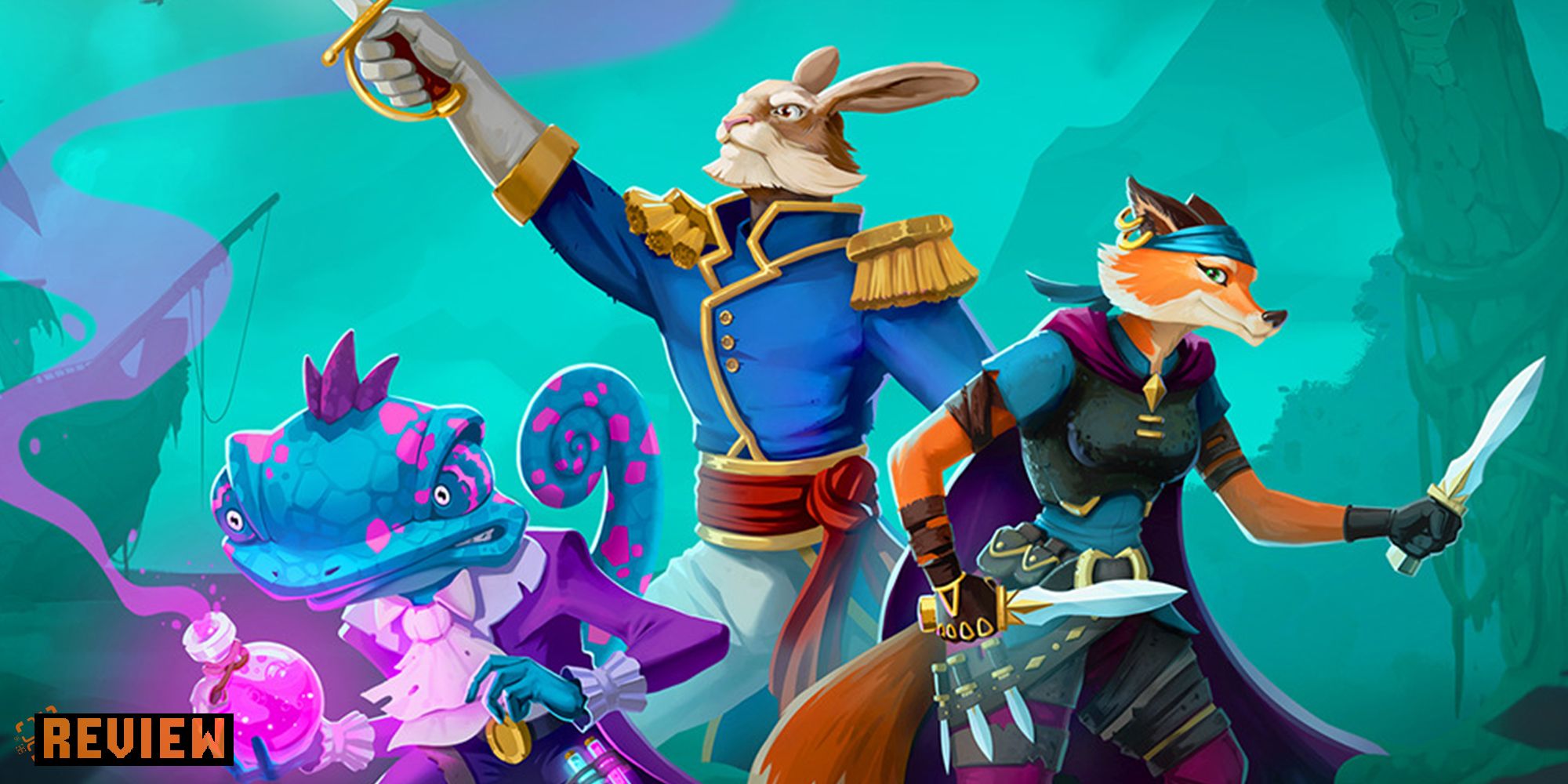
Untamed Tactics, a grid-based strategy RPG set in the world of tabletop game Untamed, showed potential when it was announced. With bright, anthropomorphic characters and a framing story set around the protagonist recounting tales of his exploits to his grandchildren decades after the fact, I had high hopes for the title. The final product, however, fails to live up to any of the expectations that it sets for itself.
Related: The Best Tactical RPGs On Nintendo Switch
Untamed Tactics’ standout feature, meant to set it apart from other tactical RPGs, is the Parley System. As it’s presented, Parley allows characters to talk to foes on the battlefield, intimidating them, sowing doubt in the ranks, or even convincing them to switch sides. It’s a neat idea that evokes some of the best scenes in the Fire Emblem franchise, but Untamed Tactics’ implementation leaves much to be desired.
In practice, Parley amounts to little more than a generic “ultimate ability.” As your party members take actions, they fill up a shared meter; when it’s full, you can Parley. You’ll be presented with three options, ranging from the reasonable (threatening an enemy to reduce their stats) to the absurd (stopping the fight to sell them a useless knick-knack, earning a handful of coins). Depending on the foe’s randomly determined personality type, some Parleys will be more effective than others.
Even though Parley isn’t nearly as exciting as it’s made out to be, it could have at least been fun if it provided opportunities for clever banter. Instead, each Parley type has one or two dialogue lines that are repeated every time you use them. Worse still, these lines all feel like they were written by and for children - intimidating a cutthroat bandit by telling them you’ll make them eat their vegetables is jarringly out of place in a story that’s supposed to be about atoning for war crimes.
As uninspired as the Parley System turns out to be, it’s also one of the most overpowered weapons at your disposal. If you’re lucky enough to get “Seductive Remark,” you can remove an enemy from the field altogether by making them uncomfortable with flirtatious advances. If their personality is Enthusiastic, they’ll join your team as an AI ally instead.
Eliminating or converting an enemy, no questions asked, means that if you draw Seductive Remark then any other choices are fully irrelevant, and it shows up fairly often. As a result, Parley becomes a repetitive and boring grind to fill up the meter as quickly as possible, and you’re always disappointed if you don’t draw the auto-win card.
Weaponized lechery isn’t the only part of Untamed Tactics that veers into uncomfortable territory. The campaign story is essentially a white savior narrative, where the disgraced General Greycoat and his companions, all dressed in early-nineteenth-century European styles, are shipwrecked on an island inhabited by a tribal society. Greycoat and his allies settle there, eventually taking it upon themselves to protect the inhabitants from Goldmane, the villainous officer who replaced Greycoat in the Imperial Army back home.
The portrayals of the characters don’t help the colonial tones in the story, either. The Bonefang Tribe, who inhabits the island, consists of tigers, rhinos, monkeys, and other animals emblematic of Africa and India, both heavily colonized by Europe in the real world. Greycoat’s retinue, on the other hand, is made up of rabbits and foxes. His advisor, the chameleon alchemist Mortimer, seems at first to be an exception, but it’s revealed midway through the game that Mortimer is from the northern part of the island, which was colonized previously by a rival kingdom.
Looking past the troublesome implications of the writing, Untamed Tactics’ gameplay feels like it could be fun if it was given more time to cook. The biggest winner is the progression system, which allows for heavy customization and some impressive character builds. By finding and equipping new abilities, and modifying them with gems and runes, you can fully outfit each party member exactly as you want.
Every character resets to their base level at the end of each chapter, giving the game a roguelike feel. This gives players the freedom to try new builds, but it can be jarring to come out of a fight where you combo a chapter boss into next week, then suddenly have trouble with basic foes. The chapters are also a bit too long for the progression system as it’s currently designed; by the time you’re halfway through a chapter, leveling up just means higher numbers since it’s not worth swapping out abilities, runes, or gems to change your build.
Overall, Untamed Tactics just feels unfinished. The character animations are basic puppet movements, many of the HUD assets are as generic as they come, and the battles start to all feel the same after only a few hours. The introduction of new enemy types in later chapters - particularly the exploding alchemists and manipulative crows that appear in Chapter Three - helps to shake things up, but once the novelty wears off, it’s back to grinding out the same missions on the same maps until you reach a boss fight.
It’s disappointing to see a project that had potential come up short, but if like me you were anticipating the launch of Untamed Tactics, it turned out to be far from what we were hoping for. The game’s biggest selling point could have been a dynamic Parley System with witty banter and opportunities for hidden characters and plotlines, but like the rest of the title it falls disappointingly flat.
Score: 1.5/5. A review code was provided by the publisher.
Next: The Best RPGs Where You're Not Saving The World













